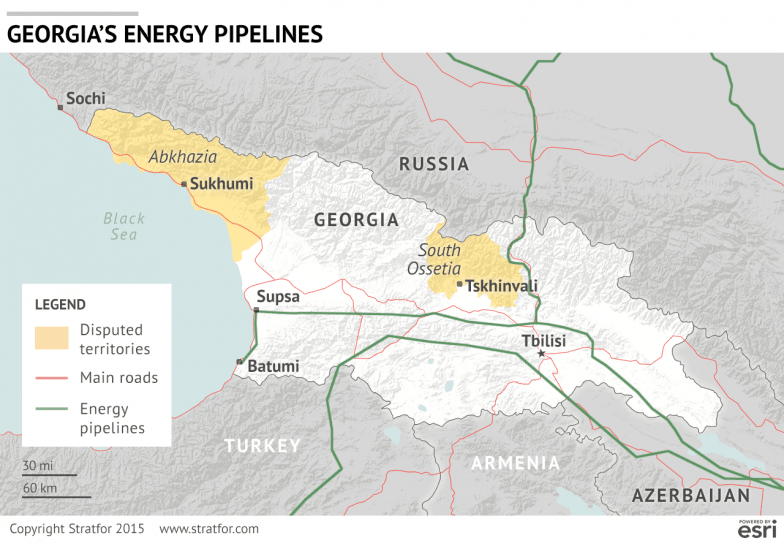
Georgia has generated significant controversy in recent weeks as it negotiates to increase its natural gas imports from Russia. Talks began in late September, when Georgian Energy Minister Kakha Kaladze reportedly met with Gazprom CEO Alexei Miller in Brussels. Although the Georgian government initially denied that the Sept. 25 meeting took place, Kaladze confirmed Oct. 10 that talks with Moscow had begun. The two officials then reportedly held a second meeting in Milan, Italy, on Oct. 27.
Georgia fought a war against Russia in August 2008, and it has since become one of the most outspoken anti-Russian, pro-Western states in the former Soviet periphery. Georgia has made EU and NATO accession its top foreign policy priority, while Russia has militarily and economically backed the Georgian breakaway territories of South Ossetia and Abkhazia since the war's end.
The enmity between the two has also trickled down into the realm of energy. Over the past decade, Georgia has reoriented itself away from a dependence on Russian natural gas and toward an energy reliance on Azerbaijan. Since the 2003 debut of the Western-backed Baku-Tbilisi-Ceyhan and Baku-Tbilisi-Erzurum pipelines, Georgia has served as a vital transit state for and consumer of Azerbaijani oil and natural gas. Azerbaijan supplies roughly 90 percent of Georgia's annual natural gas consumption of 2.2 billion cubic meters. As trade between the two has grown, Russian natural gas exports to Georgia have fallen precipitously, caused in part by a politically motivated disruption of a Russian natural gas pipeline in 2006. However, Russia continues to account for about 10 percent of Georgia's natural gas imports as part of a transit deal struck to supply Georgia's southern neighbor, Armenia.
Despite the talks, it is highly unlikely that Georgia will substantially reorient its foreign policy position toward Russia. The country remains interested in importing the majority of its energy supplies from Azerbaijan; Prime Minister Irakli Garibashvili's Oct. 12 visit to Baku and President Ilham Aliyev's upcoming visit to Tbilisi attest to Azerbaijan's importance to Georgia as a strategic partner. That said, Tbilisi may be using its talks with Moscow to extract more favorable prices from both suppliers, or perhaps even as a means to mitigate the risk of Russian interference with Georgia's pipeline network near South Ossetia. Even so, the Georgian Dream government continues to actively seek greater integration with the West.



